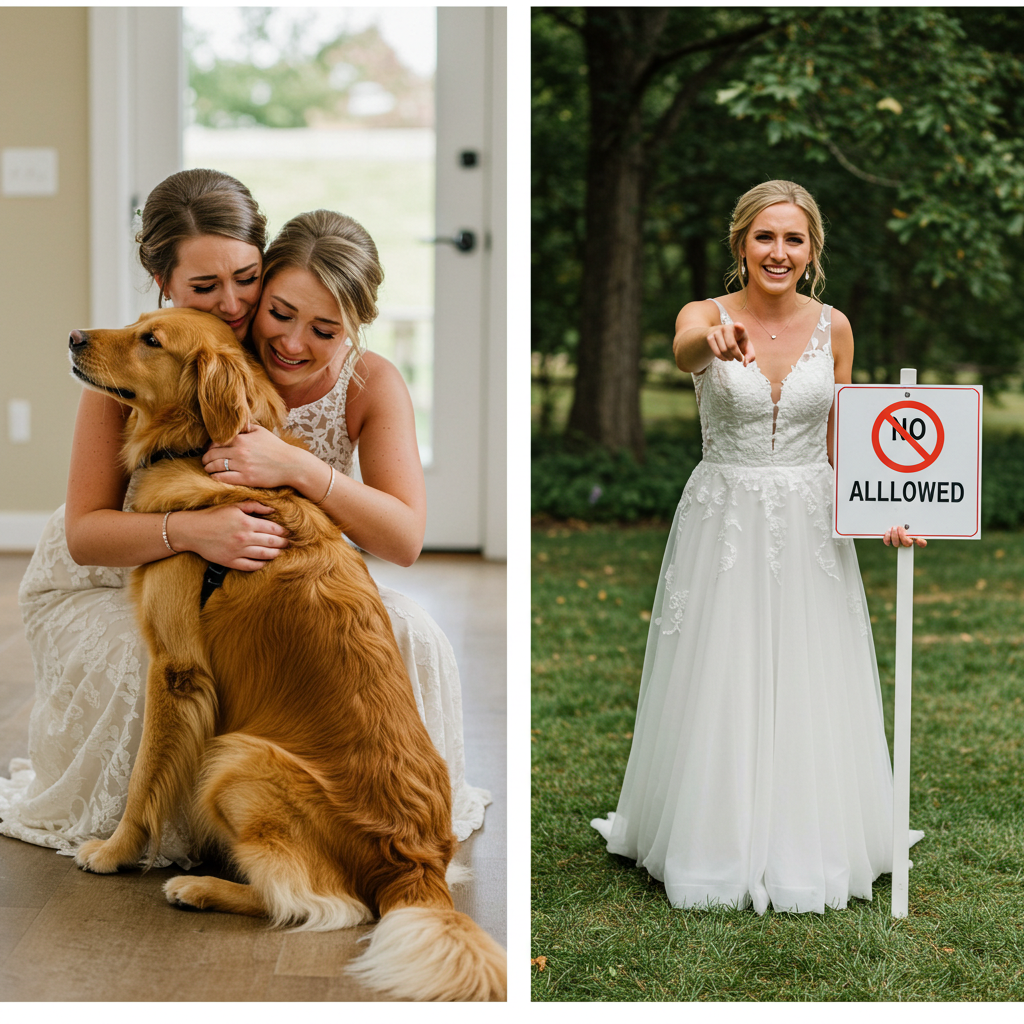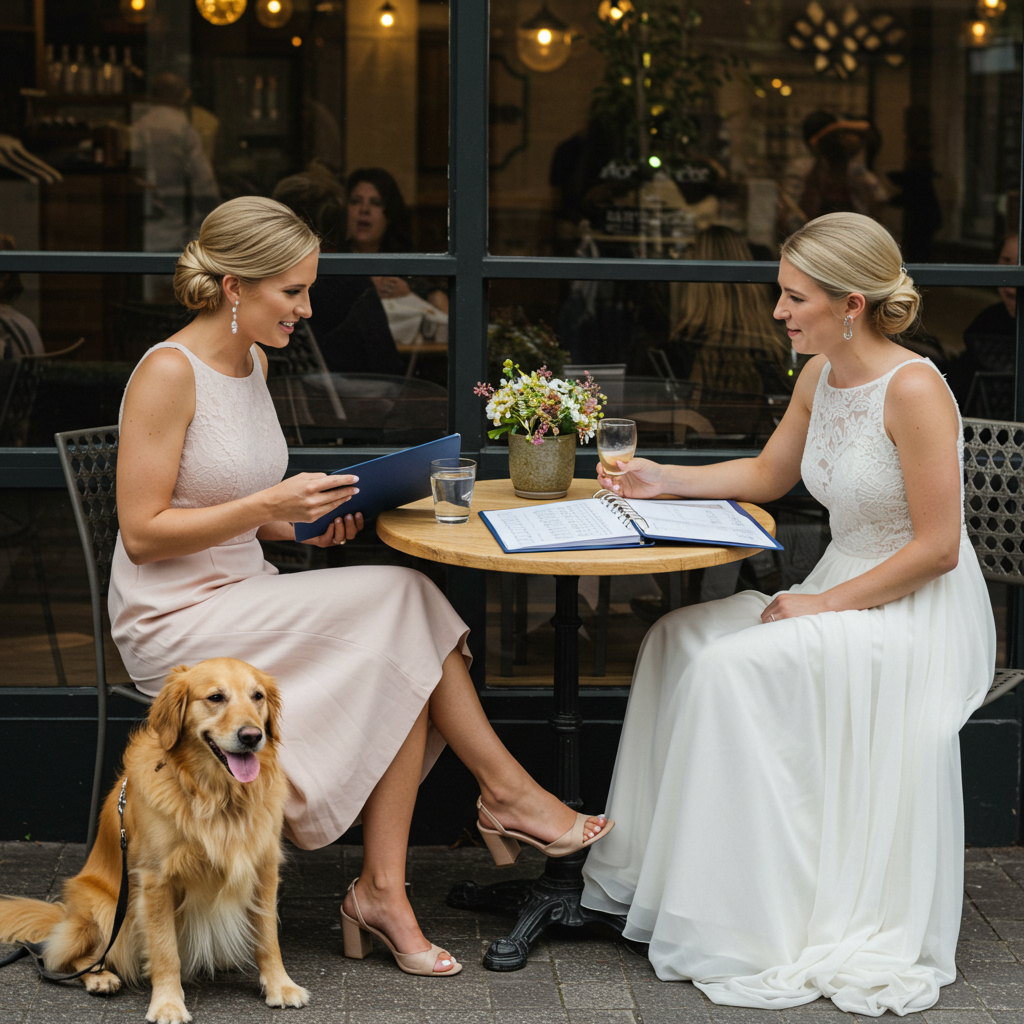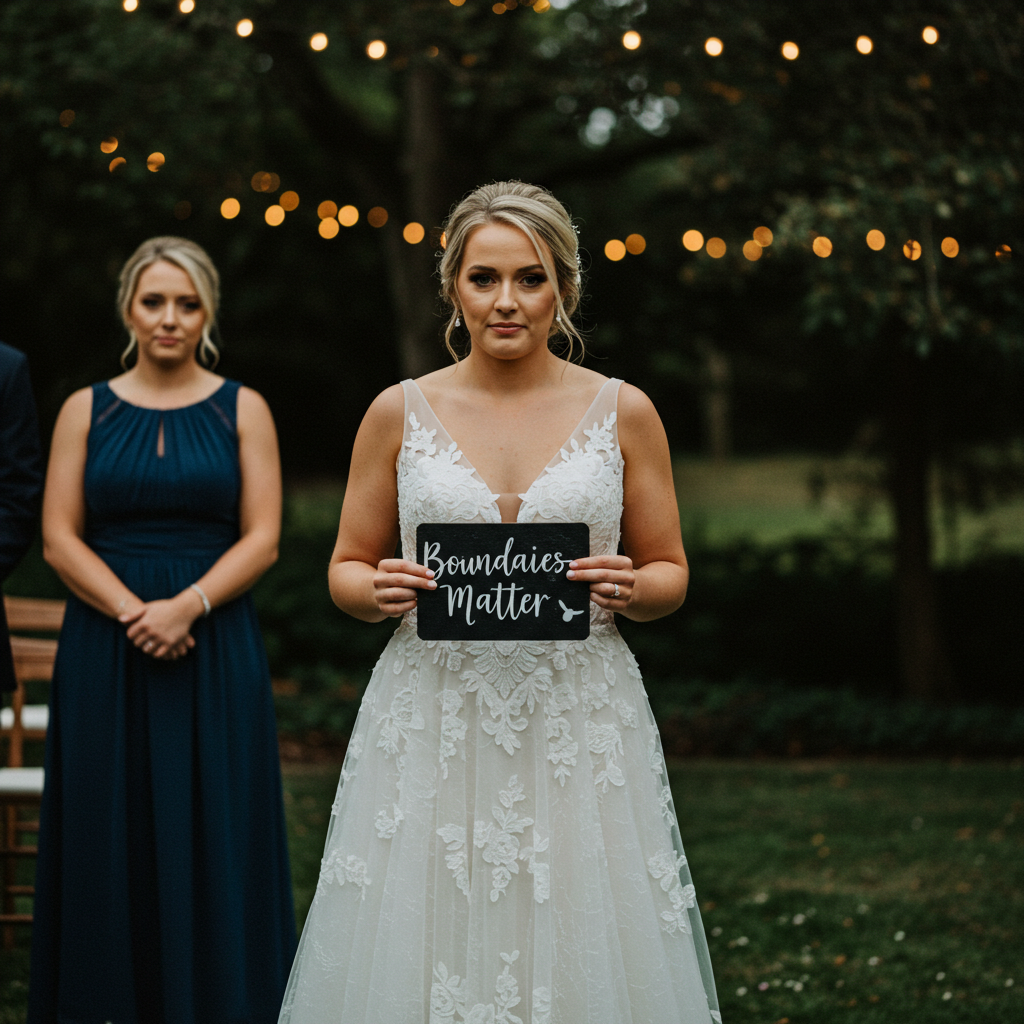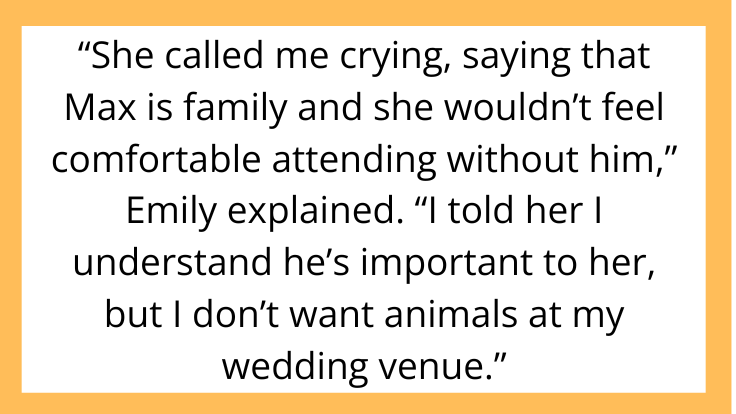AITAH for Telling My Sister She Can’t Bring Her Dog to My Wedding?
Weddings are supposed to be a celebration of love, but sometimes they turn into battlegrounds over the tiniest details—or in this case, a dog. Today’s AITAH scenario comes straight from the r/AITAH community, where a bride-to-be asked: Am I really the villain for banning my sister’s dog from my big day?
Let’s dive into what happened, why it struck such a nerve, and whether drawing this line was truly out of bounds.
The Story: A Bride, a Dog, and a Family Feud

The poster, who we’ll call Emily, is a 27-year-old bride planning her wedding for next month. Her sister, Anna, has a golden retriever named Max, who she treats like a child. Max goes everywhere with Anna—vacations, restaurants, even work.
When Emily sent out her wedding invitations, she made it clear: no pets allowed.
Anna was furious.
“She called me crying, saying that Max is family and she wouldn’t feel comfortable attending without him,” Emily explained. “I told her I understand he’s important to her, but I don’t want animals at my wedding venue.”
Anna accused Emily of being selfish and disrespectful. Their parents took Anna’s side, arguing that making an exception for Max would be the kind, family-oriented thing to do.
Emily, feeling overwhelmed and cornered, turned to Reddit for judgment: AITAH for telling my sister to leave her dog at home?
The Argument: Sentimental Bonds vs. Event Practicality

Anna’s Perspective: Max is Family
From Anna’s point of view, Max isn’t just a pet—he’s an emotional support animal. She struggles with anxiety, and Max has been her constant companion through tough times. Anna believes that if Emily truly cared about her well-being, she would make this one exception.
Plus, Anna argues that Max is well-behaved, fully trained, and wouldn’t disrupt the event.
Emily’s Perspective: It’s Her Wedding, Her Rules
Emily explained that her venue has strict rules about animals indoors, and she doesn’t want to deal with extra liability or distractions on a day that’s supposed to be about her and her partner.
She also worries about guests with allergies or phobias, and she doesn’t feel it’s fair to put their comfort at risk.
Reddit Weighs In: Whose Side Are You On?

Commenters were quick to chime in, and most agreed that Emily was not the villain.
One top comment read:
“It’s your wedding. If you don’t want a dog there, that’s the end of it. Her emotional attachment doesn’t override your boundaries.”
Others pointed out that Anna seems to be leveraging guilt to get her way.
“Refusing to attend your sister’s wedding over a dog sounds manipulative,” another user said.
Still, a few people empathized with Anna’s anxiety and suggested that Emily could offer a compromise, such as having Max nearby with a dog sitter or letting Anna bring him to the hotel.
When Boundaries and Emotions Collide

This situation highlights a difficult truth: weddings are often where personal boundaries clash with family expectations.
Why It’s So Emotional
Pets, especially emotional support animals, can feel like lifelines. To Anna, being told “no dogs” wasn’t just a logistical rule—it felt like a personal rejection of her relationship with Max and, by extension, her identity.
But for Emily, compromising her wedding vision to accommodate a dog—no matter how beloved—felt unfair.
Finding Middle Ground

So, what could they do?
Possible Solutions:
-
Provide a Pet-Friendly Space Nearby: Some venues have outdoor areas where pets can wait with a handler.
-
Offer Support Alternatives: Could Anna bring another form of anxiety support, like medication or a friend?
-
Set Clear Expectations: Emily can gently remind Anna that this boundary isn’t about rejecting Max, but about keeping the event comfortable for everyone.
Ultimately, though, it’s Emily’s decision. And she shouldn’t feel pressured to sacrifice her comfort on a day meant to celebrate her relationship.
What This Teaches Us About Boundaries

This AITAH post is a classic example of how hard it is to balance empathy and self-respect.
Setting boundaries isn’t cruel—it’s necessary. And if someone can’t respect your limits, it often says more about them than it does about you.



